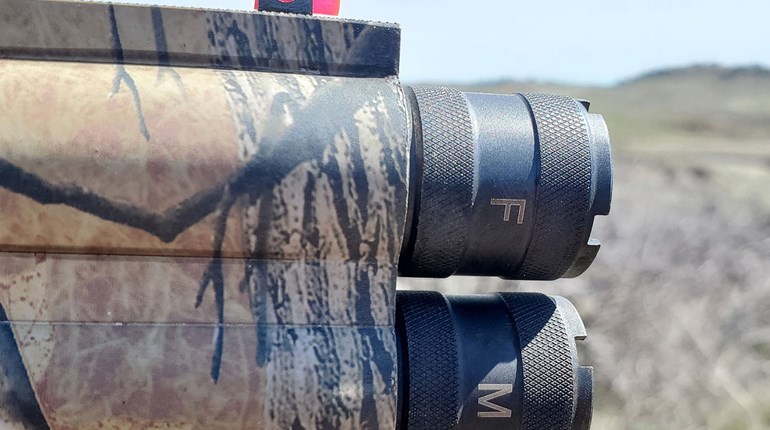
Have you ever gotten a phone call or a text from someone you haven’t heard from in years, and you say, “This is a wild coincidence—I was just thinking about you this morning!”
Have you ever heard someone say that dogs or horses are better judges of character than humans?
Have you ever had the feeling that something isn’t quite right with a situation, and you later found out that you were correct and something went wrong after you left?
None of those things are magic or coincidence (well, most of the time). They’re all tied to your intuition. How?
Your brain is constantly picking up signals that you’re not consciously aware of and connecting dots that you don’t even realize are there. We call it “intuition,” but we tend to talk about it as if it’s some mysterious, unexplainable phenomenon. In reality, intuition is one of the ways your brain protects you, by allowing you to make predictions about what’s going on around you. For example, in the situations described in the beginning of this article:
When your high school best friend calls you out of the blue, and you happened to be thinking of her that morning, there’s a very good chance something subconsciously triggered both of you to think of the other. Maybe a news story just broke that closely resembles a series of events you went through together 20 years ago. Maybe the musician whose concert you attended together senior year just dropped a new album or was in the news for another reason. You don’t consciously make the connection, but something happened that made you think of her and made her think of you, and she called.
When your dog doesn’t like a date you bring home, and you think “Wow, dogs are so smart—this guy must be bad news,” what’s actually happening is your brain can tell this guy is bad news based on subtle clues and context. Your dog probably didn’t see those clues and can’t connect dots the way you do. He has no context regarding this guy, so he can’t read him—but your dog can read you because he knows you. You don’t realize it, but you’re reading the guy and the dog is responding to the cues you’re putting out based on the bad vibes you’ve gotten.
The third example is more vague, but your brain is an expert at making predictions, and in every situation, you’re subconsciously putting together context clues based on all your senses and pulling data from every other situation you’ve ever been in and every news article you’ve ever read, and all those data points have added up to “this doesn’t seem right.”
Intuition is 100 percent real. Just because it’s not as clear-cut and explainable as logic and reason doesn’t mean it’s not valid. The problem comes in when we discount it or deny it because we can’t explain it. Your intuition is a gift and a vital defense mechanism—you have to learn to trust it. Doing so will not only keep you safe, but it will also keep you from feeling fear and panic in situations where it’s not warranted. However, trusting your intuition is easier said than done.
Stop Ignoring Your Feelings
The next time you have a “gut feeling” about something, notice how you have a tendency to talk yourself out of it. Normalcy bias makes us want to think that everything is fine. You’ll tell yourself it’s silly to think the internet service guy who showed up at your door unannounced is dangerous and shouldn’t be let in—the company logo is right on his hat, so he must be legit. And your internet did go out for 20 minutes for no reason last week. And you really shouldn’t feel so judgmental and afraid of your fellow humans, because most people are good people, right?
The next time you catch yourself trying to deny your feelings, stop. Remind yourself that just because you can’t back up a feeling with facts doesn’t mean the facts aren’t there. Intuition happens much, much faster than conscious thought—which means your brain has read some signals it doesn’t like, but you haven’t processed them consciously yet, because that takes time. Maybe the car in the driveway is unmarked and your brain noticed that was unusual for a company service tech. Maybe you talked to your internet provider last week and they said they’d call you back with a head’s up before they sent a tech out, and they never did. Maybe the guy’s wearing a heavy jacket in August (is he hiding something in the coat?). Whatever it was, your intuition remembers what your conscious brain doesn’t. Remind yourself that “I can’t put my finger on why I feel this way” doesn’t mean the feeling is wrong.
Practice Trusting Yourself
“How many times have you said after following one course, ‘I knew I shouldn’t have done that?’” author Gavin de Becker writes in The Gift of Fear. “That means you got the signal and then didn’t follow it.” The way to get better at trusting your intuition is through practice—the more you trust it, the more you learn that it’s trustworthy, which gives you greater confidence to trust it next time and the time after that. After all, not every “feeling” is accurate. Sometimes you’re just stressed or anxious, and your feelings will lie to you. It will take some practice to learn which gut feelings are intuition and which are just you projecting your own fears or desires onto a situation.
Give yourself permission to trust your hunches and act accordingly—on the big decisions as well as the small ones. Flexing that trust muscle will help it grow.
Analyze When You Can
In some cases, circumstances require you to act so quickly that there’s no time to think through your intuitive signals—as is the case with danger and crime. But sometimes you’ll have time to consider a situation and what your intuition is telling you. Say you’re considering taking a new job offer, but even though everything seems to tell you this is a great opportunity, you have this little nagging feeling that it’s just not the right fit. In this case, you have time to analyze your intuition. Because it’s sort of the opposite of logic, intuition is hard to analyze, but try to examine the facts—large and small—you’ve picked up along the way. What clues did you observe (or not observe) in the interview process that might explain why you’re not entirely comfortable? What did you hear, see, smell and feel as you walked through the office?
The next time you say, “I knew I shouldn’t have done that,” take a minute to ask yourself how you knew you shouldn’t have done that. You were right, and you didn’t listen to yourself, but how did you know? After the fact, you might be able to point out the context clues that your brain had already stitched together before you made the choice to ignore your intuition. Hindsight is definitely 20/20 in a case like this.
Remember: You’re an Expert at Prediction
You can gain confidence in your intuition by reminding yourself that you make hundreds or thousands of accurate predictions every day (after all, intuition is just high-stakes predicting). When you’re driving down the road, you somehow “just know” when another driver is about to pull right out in front of you or change lanes abruptly, don’t you? Guess what: You didn’t magically guess that he was about to pull out and cause a wreck. Your brain subconsciously read the movement of his eyes and head, the nearly imperceptible turn of the tires, and other signals that you didn’t stop to think about. You just got the intuitive signal that screamed “Danger!” This happens in a hundred different ways every time you get behind the wheel, with incredibly high stakes if your predictions are wrong—but they almost never are.
You “know” how other drivers will act on the road. You know when your spouse is in a bad mood even if he or she is trying to hide it. You know when your kids are lying to you about something even if you have no evidence. You know when your boss has bad news to break even when she’s acting like everything is normal. You might not know how you know, but you do, and you’re right. You experience these kind of accurate predictions all the time, and you can take that as evidence that your intuition works and can be trusted.














































